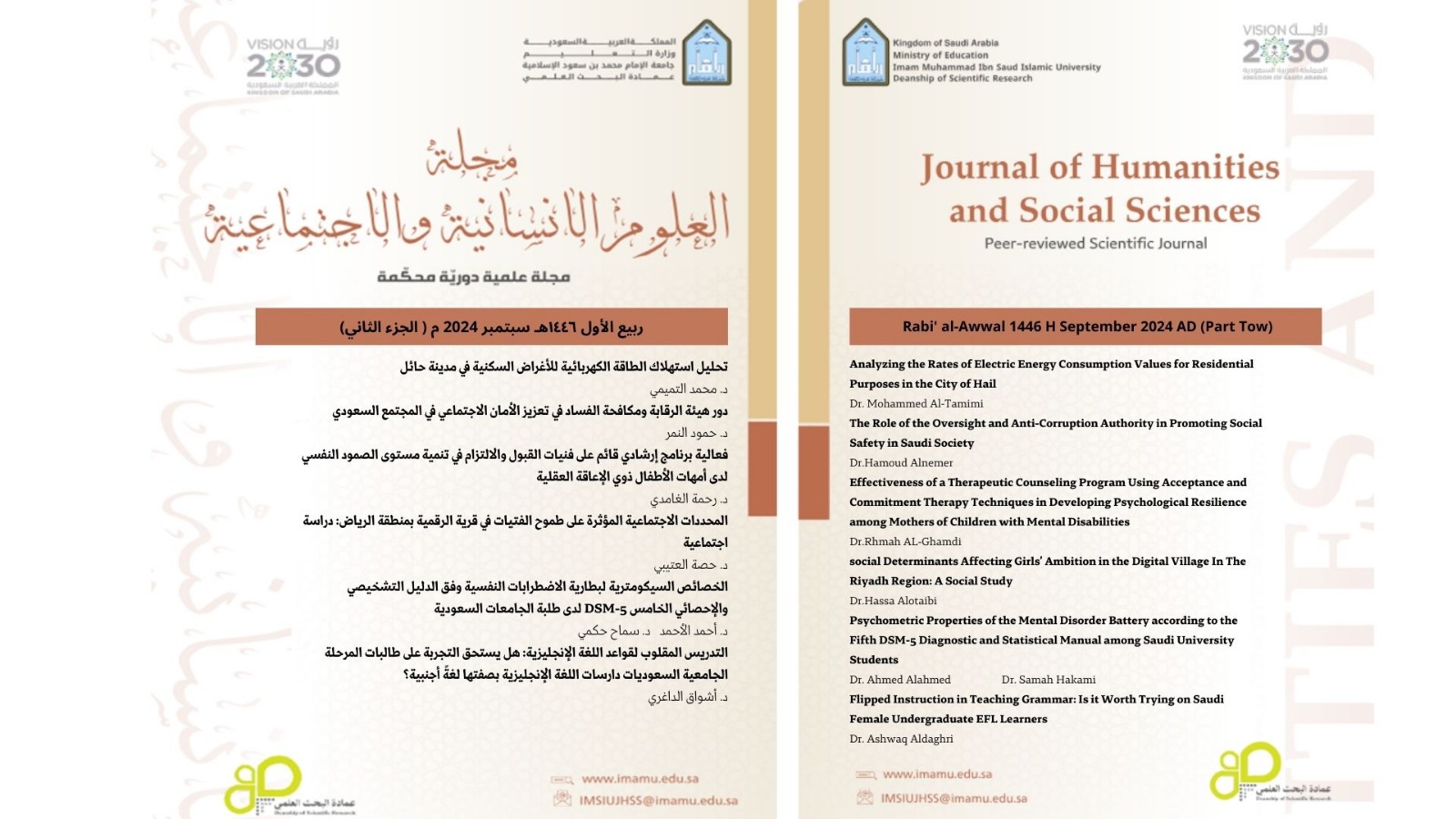Analyzing the Rates of Electric Energy Consumption Values for Residential Purposes in the City of Hail
Keywords:
Saudi Arabia, Hail city, electricity consumption, use of electric energy for residential purposesAbstract
The study aims to identify the rates of electric energy consumption for residential purposes in Hail city, the factors affecting the residential sector's consumption of electricity, and knowing the degree of satisfaction of the residents of Hail city with the elements of electric energy consumption. The inductive approach was used, supported by the descriptive analytical approach and the quantitative mathematical approach. The study data was collected from a sample of (328) respondents. The results of the study showed that the average of consumption of electricity in winter is less than the average of consumption of electricity in the summer by (26%). The results of the study also showed that the variables: the number of air conditioners, the dwelling area, family count, type of housing, meter capacity, type of air conditioner, and number of refrigerators affect the rate of electricity consumption in summer at a statistically significant level. The results also showed that the number of air conditioners, the family count, the number of electricity meters and servants, and the dwelling area affect electricity consumption in winter at a statistically significant level. The study submitted a number of recommendations that could contribute to rationalizing electricity consumption in the city, the most important of which are switching to using split air conditioners (air conditioners with high efficiency in reducing energy consumption) to reduce electricity consumption, and raising awareness among citizens of the importance of rationalizing electricity, through radio and television programs, social media, and housewives monitoring of housemaids' use of electrical appliances to reduce waste. The study also recommends encouraging citizens to use solar energy.




